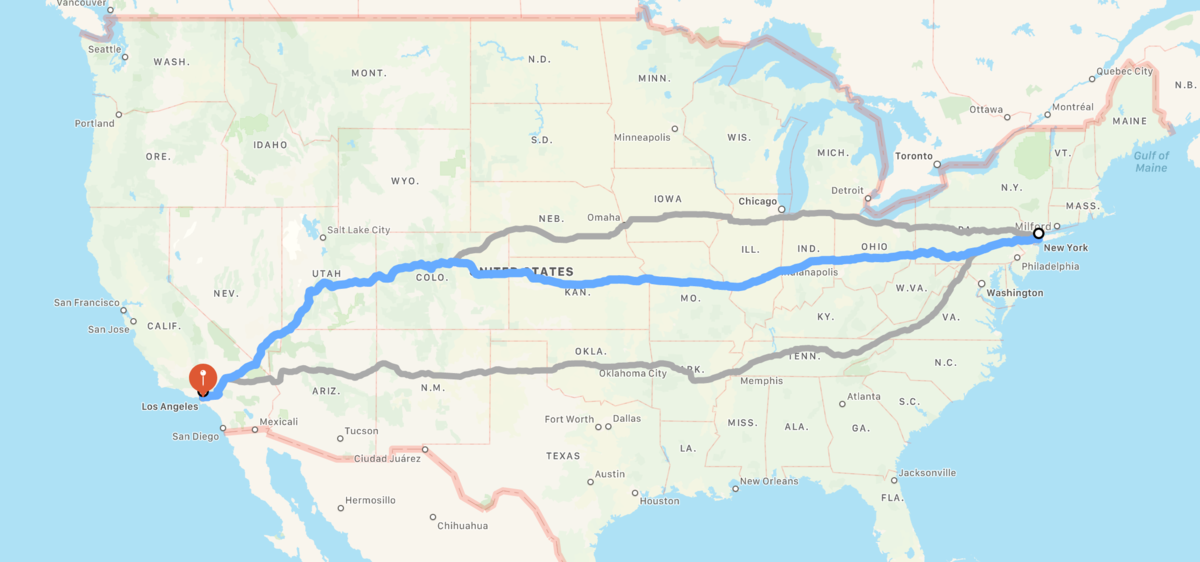Business & Strategy
Understanding vision, strategy, and execution
24 Oct 2020
What’s the relationship between a product vision, strategy, and execution? Vision is what you’re trying to do. Strategy is broad strokes on how you’ll get there. Execution is the tasks you complete to complete the strategy.
Vision is what you’re trying to do.
Vision is the hole in the universe without your product. It’s the reason your product exists and what the world looks like in the future as your product grows. Vision is long-term. For startups and new products, you’ll do OK if your vision reaches 5 years out.
Imagine going on a road trip. Your vision says, "we’re going to drive from Los Angeles to New York. We want to arrive by Thanksgiving, three weeks away. We want to visit weird roadside attractions along the way."

Strategy is broad strokes on how you’ll get there.
A strategy is the things you’ll do to reach that vision. What problems are you going to solve, in which order, and for whom? What’s your purchasing model? What’s your model for ensuring that customers who buy your product are successful? Strategy defines and informs the choices you’ll make as you execute. Your strategy is more fluid than your vision. As you learn, your strategy will adapt and evolve. But it shouldn’t change drastically or you won’t get anything done. A startup product strategy often looks somewhere between a couple of quaters to a year out.
Your road trip strategy says, "we need to cover 1000 miles a week. We’ll avoid large cities because they don’t have quirky attractions. We’ll take a mostly southern route so we can avoid snowy weather. We’ll stop and see my college roommate in Des Moines if he’s in town."
If you find some fantastic attractions along the way and the forecast shows good weather, you might deviate a little north. You might cover 1200 miles one week and then spend a few days in a small town the next. The road trip plan has shifted a little as you learned new things along the way. But you’re still driving to New York. You didn’t decide to skip Thanksgiving and fly to the beach in Miami instead.
Execution is the tasks you complete to complete the strategy.
Execution and tactics are the things you do to move that strategy forward. You execute by continually choosing the very next action you will take to get closer to completing your strategy. Tactics happen at a macro level (what should we do this week or this quarter) and a micro level (what needs to happen this morning to finish task X). Tactics shouldn’t be 100% prescriptive - it can be a good idea to avoid decisions until you have more information and are ready to execute.
Your road trip execution says, "Today we leave Lincoln, Nebraska, and head to Des Moines, Iowa. It’s about a three-hour drive. My college roommate’s having a party, so we need to be there by 6. The world’s biggest ball of stamps is in Boy’s Town, not far off our route, so we’ll have lunch near there and then go see it. Saturday morning we’ll head southeast toward St Louis so we can avoid that storm rolling into the Great Lakes area."
When you planned your trip in Los Angeles, you didn’t pick which restaurant you’d eat at on day 16. You’re not even picking it before you leave. It’s a decision you can make when it’s lunchtime and you see what places are around you. When you planned to head southeast, you were tying tactics to strategy. There’s a storm coming and you want to avoid snow.
By linking vision, strategy, and execution, and by keeping them separate, you don’t just keep your plans flexible enough to handle change. You can communicate at the appropriate level with the right people.
Your boss may need to know you’re taking three weeks off before Thanksgiving and that you’ll be on a road trip in case she needs to reach you. But she doesn’t care that you’re visiting your parents in NYC or that your college roommate lives in Des Moines. You’re only giving her the Vision.
Your parents in New York City don’t need to know you’re going to have lunch at Charleston’s Restaurant near a ball of stamps. But they might be interested that you’re seeing your roommate along the way. You’re telling them the Strategy, not how you’ll execute.
Your roommate will be very interested in what day and time you’re arriving to see him and how long you’re staying. He won’t care that three days after you leave, you’ll be somewhere in Tennessee. You’re talking to him about the execution as it directly affects him.